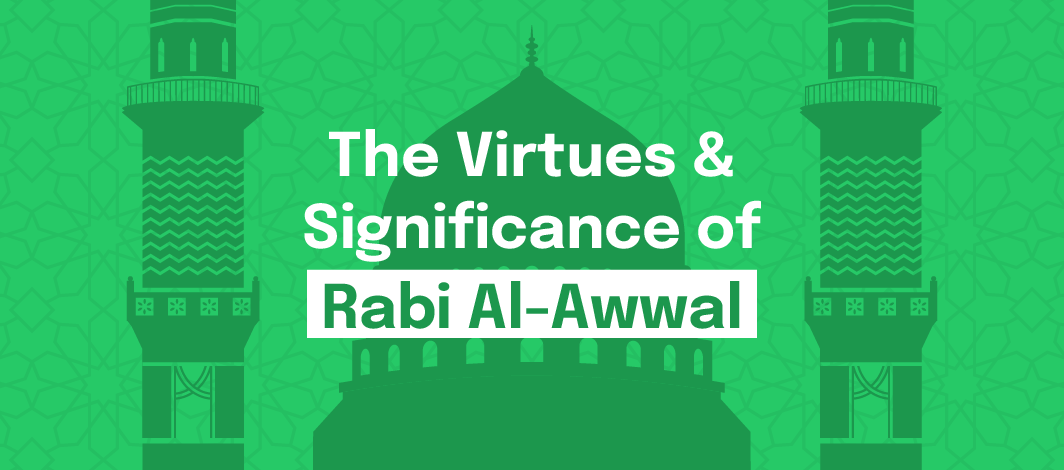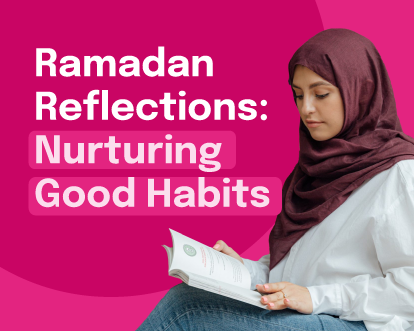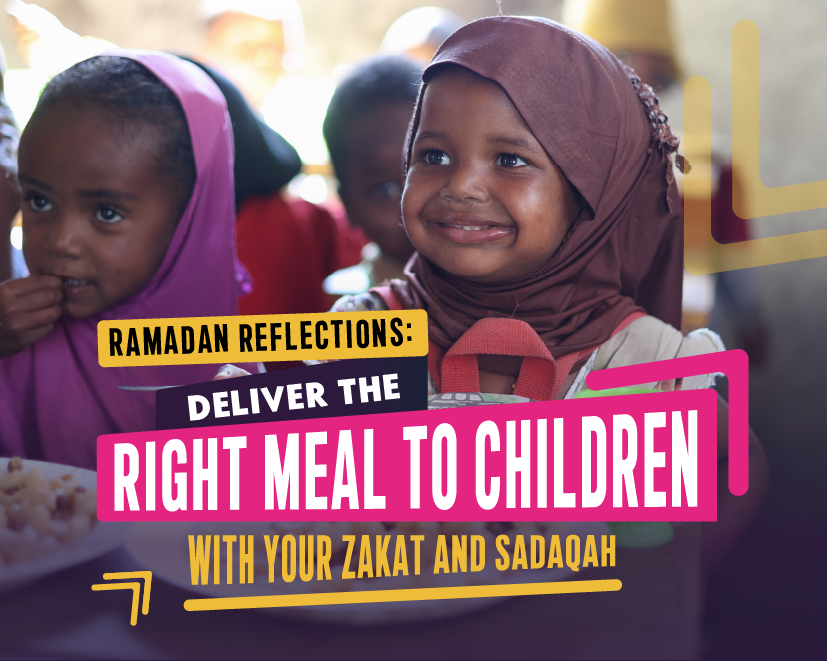What Is Rabi’ Al-Awwal & Why Is It Important?
Alhamdulillah, we are once again approaching a special time in the Islamic calendar.
Based on sightings of the moon, the Islamic calendar has many differences to the Gregorian calendar. If you’re interested in what makes the Islamic calendar special, check out our blogpost all about it!
So... what is Rabi’ Al-Awwal?
Rabi’ Al-Awwal is the third month in the Islamic calendar, coming after the months of Muharram and Safar, literally meaning ‘the first spring’.
Although not necessarily one of the four sacred months in the Islamic calendar, Rabi’ Al-Awwal is nevertheless an important month to Muslims all over the world.
The reason...
Three important events occurred in this month: the birth of the blessed Prophet Mohammed (PBUH), the first Hijrah, and even the death of the Prophet (PBUH).
The Birth of the Prophet (PBUH)
Although everyone has a birthday, not everyone’s was a blessing to humanity and “a mercy to the worlds” [Quran 21:107].
In fact, there were even some incredible miracles preceding his blessed birth. For example, Rasool-Allah (SAW) mother Aaminah (R.A) felt a light form within her even while she was pregnant, building to the point where it shone so brightly that she could see the castles and palaces of Syria (Ibn Ishaq).
The Hijrah of the Prophet (PBUH)
The Hijrah refers to when the Prophet Mohammed (PBUH) emigrated from Makkah to Madinah, an event so important that the Islamic calendar actually stems from it. In fact, each Islamic year is denoted by the letters ‘AH’ which stand for ‘After Hijrah.’ Today, we’re in the year 1444 AH, meaning this Hijrah happened 1444 years ago!
Back in the month of Rabi Al-Awwal, Mohammed (PBUH) and His companion Abu Bakr (RA) left Makkah and travelled to Yathrib, later known as Madinah al Munawarah – meaning ‘The Illuminated City’.
Death of the Prophet (PBUH)
Just as he was born in the month of Rabi’ Al-Awwal, the Prophet (PBUH) also passed away during the same month more than 60 years later, on the 12th day of the month.
But so blessed was Prophet Muhammed (PBUH) that his death was a peaceful one. Shortly before passing, he told people in a masjid that His time was near. Still, Muslims were shocked when it happened, with many refusing to believe it. After all, when they’d last seen him at the masjid just a few hours ago. It was in fact Hadhrat Abu Bakr (R.A) who reminded people that the Prophet (PBUH) was a human messenger and so destined to pass away like everyone.
When Is Rabi’ Al-Awwal?
Unlike the Gregorian calendar, the Islamic calendar is based on lunar sightings. Because of this, Islamic months tend to start on different dates each year. While the literal meaning of Rabi’ Al-Awwal can be translated as ‘the first spring’, the month doesn’t usually fall during spring.
Rabi’ Al-Awwal in 2022 will begin around the 27th of September and end on 27th October. Of course, since each month only begins when a new moon is sighted, this is only an estimation.
What To Do in Rabi’ Al-Awwal?
Unlike the months of Ramadan and Dhul-Hijjah, there are no specific deeds to perform, such as fasting, praying, or making Du’a – though many Muslims indeed do these anyway.
Nevertheless, Rabi’ Al-Awwal is a month that gives Muslims an opportunity to reflect on the virtues, life and teachings of the Prophet Mohammed (PBUH). Some of the best things you can do are to read the Seerah and perform his Sunnahs.
Read the Seerah of the Prophet (SAW)
Rabi’ Al-Awwal is the perfect month for us to remind ourselves of the Prophet’s (PBUH) life by reading His Seerah. Learning about both his life and character can help you feel closer to him and increase your love for him.
Sunnahs of the Prophet (SAW)
As you read the Seerah of the Prophet (PBUH), you’ll come across many of the Sunnah acts he carried out.
Some of these Sunnahs include:
· Reading the Quran – But don’t just stop there. Recite it, understand it and follow the lessons it teaches you.
· Fasting – This is not obligatory, but the Prophet (PBUH) encouraged fasting on Mondays and Thursdays, something we too could implement into our lives starting from this very month.
· Visiting the sick – The Prophet (PBUH) often visited the sick and poorly, showing kindness to those who needed it most.
· Caring for orphans – The Prophet (PBUH) himself was an orphan. We should ensure never to overlook them, but instead give them all the help and support they need.
· Being kind, patient and generous – This Sunnah is easy to bring in to our day-to-day lives, especially since over 300 million people need humanitarian assistance right now.
With the Islamic New Year in full swing, it’s a great time to renew and redirect your intentions if you haven’t already... One way of doing this is by nurturing positive habits such as donating Sadaqah.
Help give a child a brighter future by donating to Charity Right here today.








